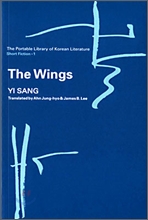Over 2010, we managed to post 51 book reviews, and of them six were books published in 2010. Which is a small number I suppose; I have that many books from 2010 on my current reading list. Just off the top of my head, I can think of Medhi Belhaj Kacem's Inesthétique et mimèsis, Rancière's Dissensus, David Harvey's The Enigma of Capital, the Verso edition of Thomas Muntzer's Sermon to the Princes, William Gibson's Zero History, and Adam Levin's The Instructions. Nevertheless, if you missed these posts, I recommend checking them out.
Cindy Milstein, Anarchism and its Aspirations (AK Press)
Milstein, as Matt writes, "has situated contemporary anarchism in a proud historical continuum that puts it at the forefront of anti-capitalist struggle; she has also condensed a number of complex ideas into an easily understandable argument that dodges the anachronistic, frankly antiquated pitfalls of the bulk of anarchist literature. I am willing to entertain the idea that her book is a contender for the best contemporary anarchist primer out there."
Slavoj Žižek, Living in the End Times (Verso)
This review has been responsible for quite a bit of our blog's traffic, so if you missed it, now is the time to check it out. Matt writes: "If I had to rate Žižek's latest offering as an elementary school teacher would rate his pupil, I would say that Living in the End Times must apply itself; it should "straighten up and fly right", "spend more time on philosophy 1102 and less time on cultural gossip 1101", etc. In short: this is a mess of a book, but it could very well have been a major philosophical statement on our times. It contains some great ideas and instances of ideology critique in action, but these are scattered almost as if at random in the course of its ungainly 402 pages."
Gideon Levy, The Punishment of Gaza (Verso)
'"Words," Gideon Levy writes, in The Punishment of Gaza (Verso, 2010), "do not kill; but words can ease the work of killing." Any number of misnomers and euphemisms can make the casualties of war less shocking, can turn the collective punishment of an entire population into a 'just war' against Hamas, can make the temporary cessation of state belligerence into a 'humanitarian' cease-fire.'
Marta Harnecker, Latin America and Twenty-First Century Socialism: Inventing to Avoid Mistakes (Monthly Review, v. 62, n. 3)
"The electoral capture of governmental power by the left across large parts of Latin America has not followed the revolutionary path of state seizure of 20th century socialism, and thus, as Harnecker argues, requires different metrics. First, 21st century socialism, of course, must learn from the mistakes of the 20th century version. And second, it must also learn from the diversification of the movements instead relying on the model of working class struggle to the exclusion of peasants, indigenous people, women, and others. Finally, it must focus on creating new forms of local and protagonistic democracy to decentralize state power."
Ivan E. Coyote, Missed Her (Arsenal Pulp Press)
Matt writes: "Despite its brevity, folksiness and humour, however, the book is not what I would call "light". I don't usually get weepy-eyed over prose, and those who follow me on this site will know that I have plenty of shit to cry over, knee-deep as I usually am in Cormac McCarthy and Yukio Mishima novels. Coyote's book is an exception to my usual reading experience. Though less "literary" in certain respects, I found much of it deeply moving and had to dab the corners of the ol' eyes now and then. She hits her targets, bang-on."
John Brandon, Citrus County (McSweeney's)
 "If you're having trouble imagining what people do in that location [Citrus County], you're not alone. So do the protagonists. Which is where Brandon excels as a storyteller. He introduces you to the characters, lets them interact a bit, sets up an unlikely and troubling scenario from which it is difficult to extract the narrative, and then...makes the reader wait. [...] On the long winding road to the finale, Citrus County is an intricate picture of small obsessions and quotidian detail, leaving the reader wondering how everyday life could be so enigmatically intriguing."
"If you're having trouble imagining what people do in that location [Citrus County], you're not alone. So do the protagonists. Which is where Brandon excels as a storyteller. He introduces you to the characters, lets them interact a bit, sets up an unlikely and troubling scenario from which it is difficult to extract the narrative, and then...makes the reader wait. [...] On the long winding road to the finale, Citrus County is an intricate picture of small obsessions and quotidian detail, leaving the reader wondering how everyday life could be so enigmatically intriguing."





